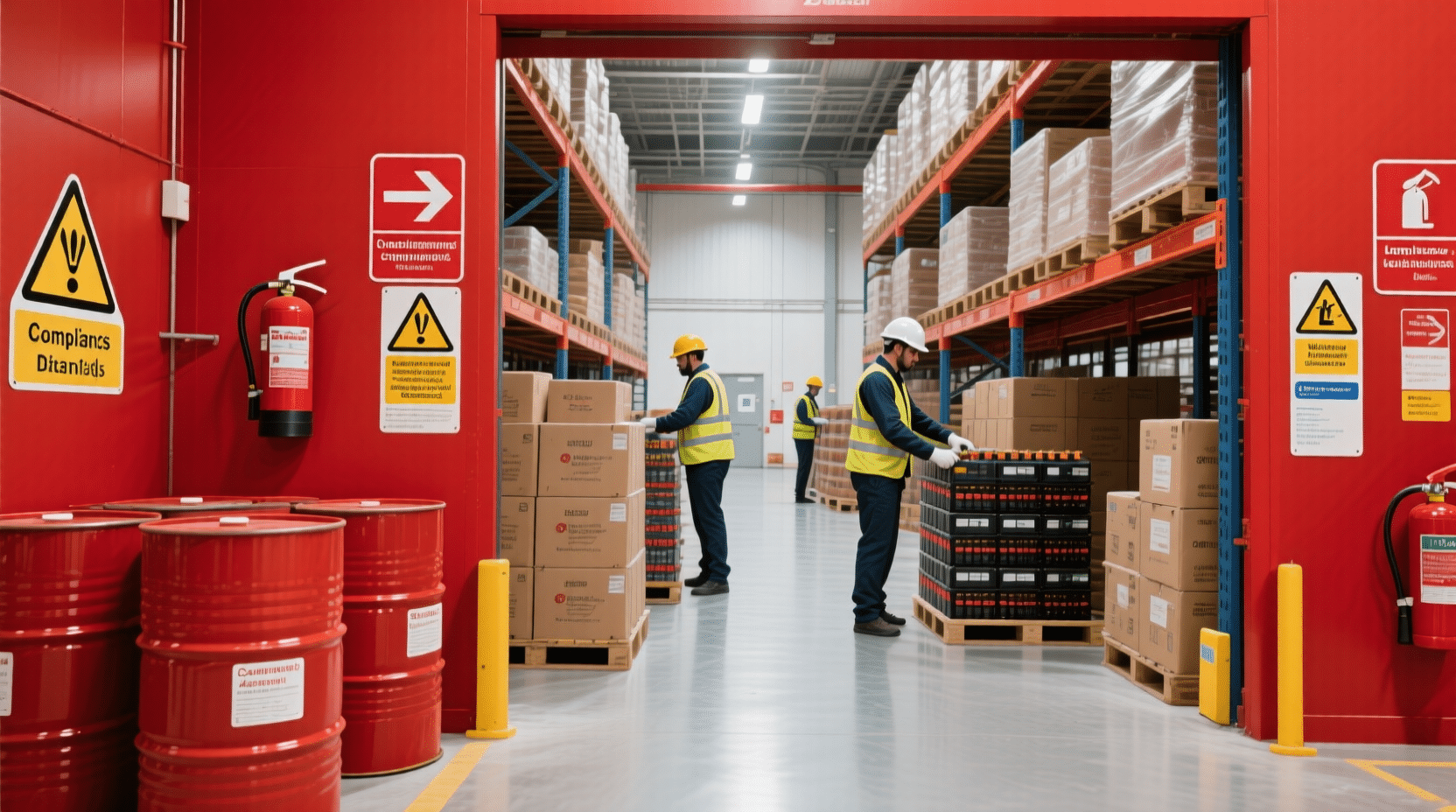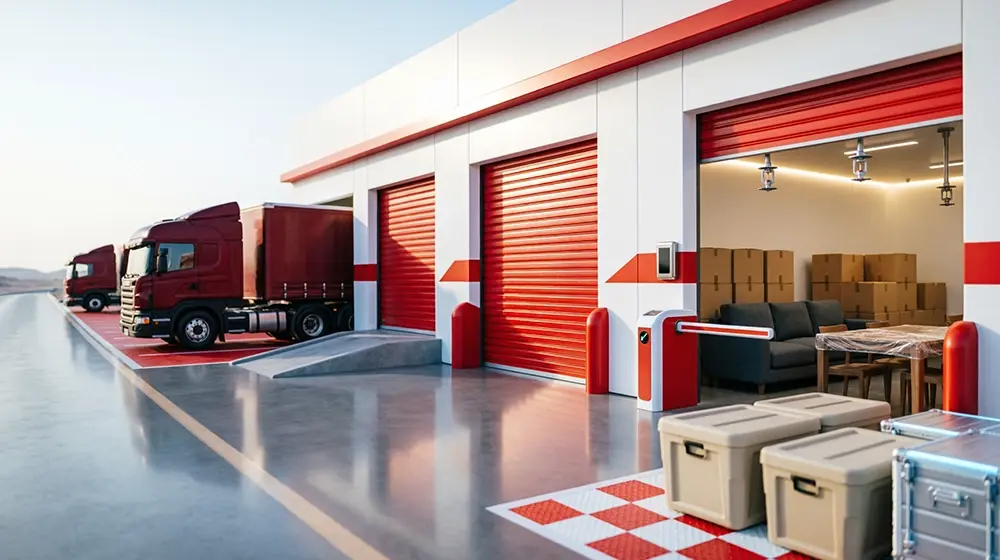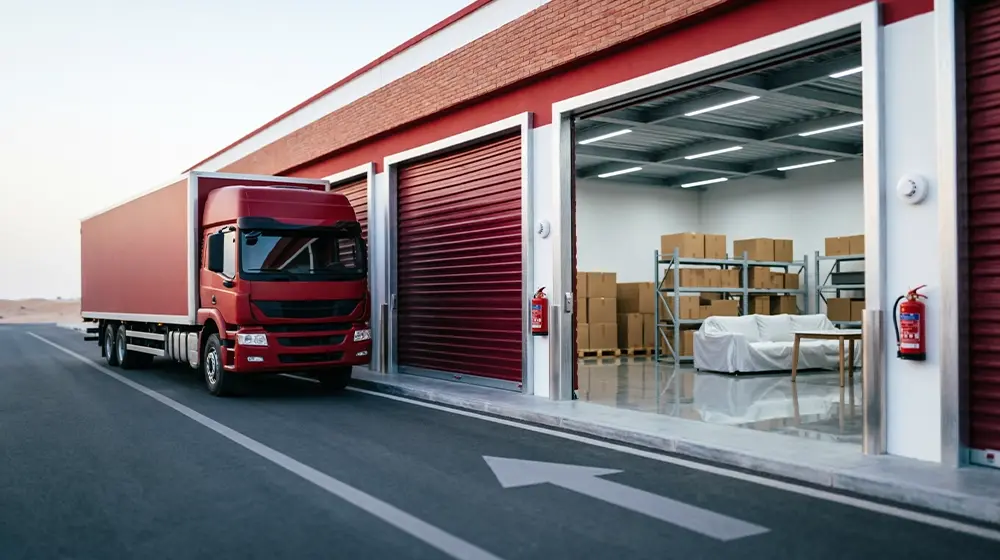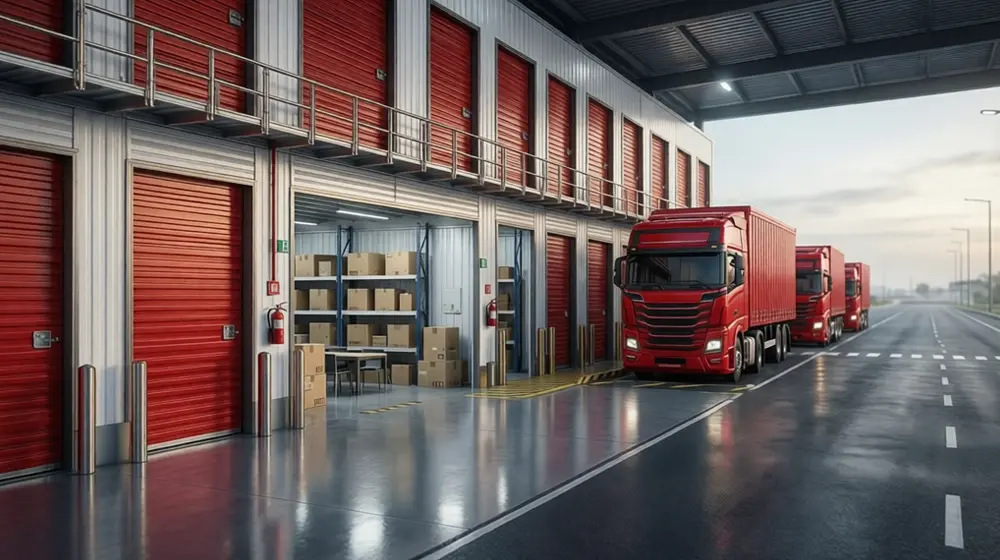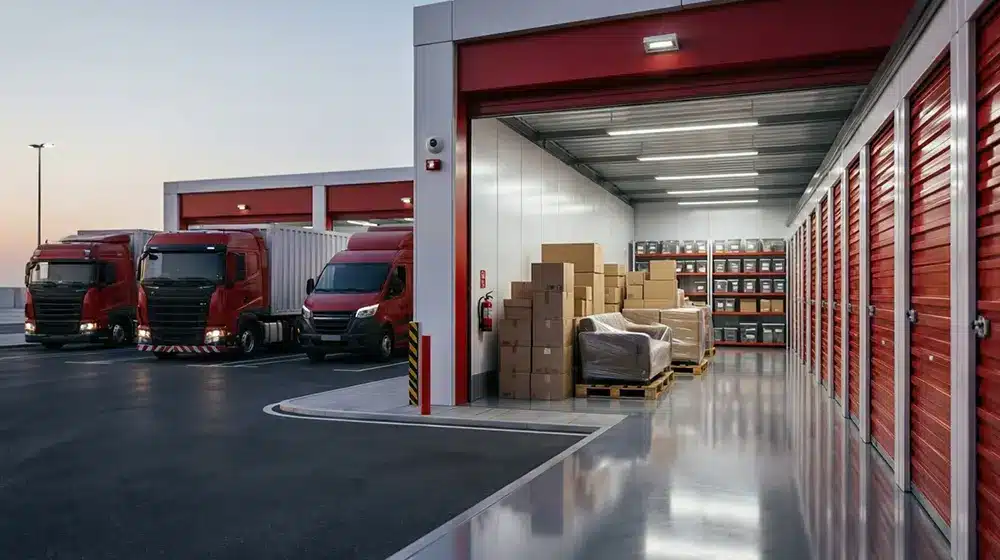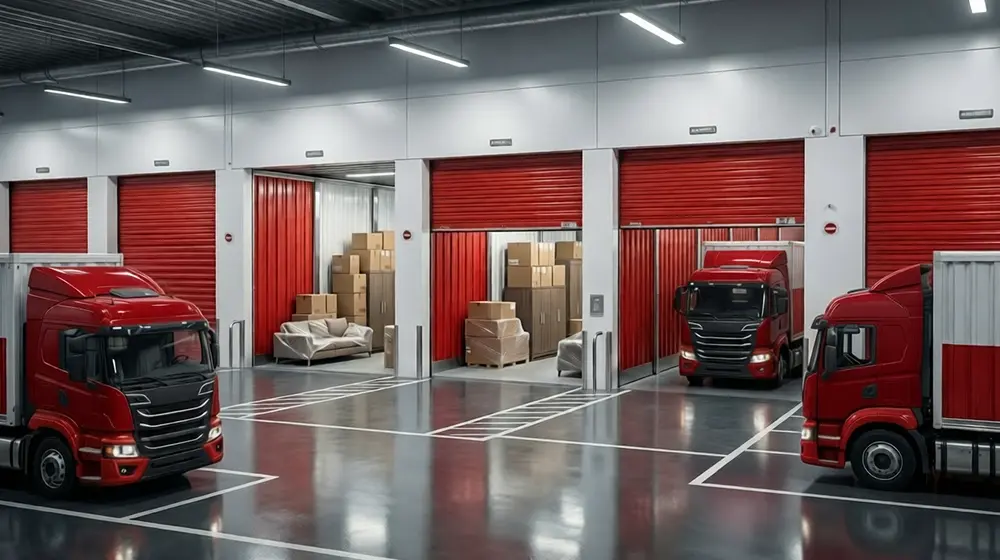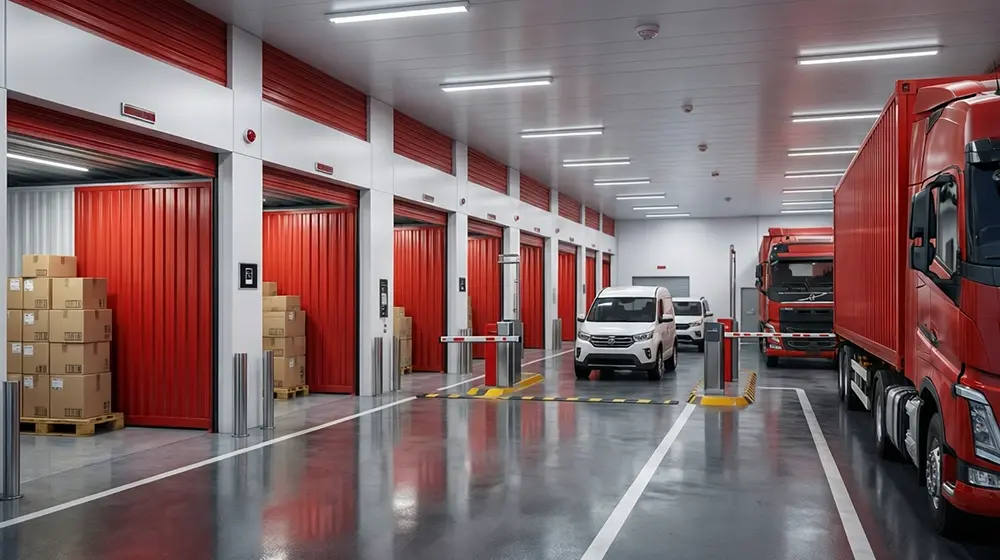The Emirate of Dubai is now a regional and global business, logistics, and trade center. As more companies depend on warehouses, free zones, and third-party logistics companies, storage requirements in Dubai have increased significantly. Storage is, however, closely regulated by civil defence laws, customs laws, and environmental health and safety regulations.
Not all is possible to be stored warehouses in Dubai . Lithium batteries, as well as other hazardous substances, are categorized within specific frameworks that decide how, where, and under what conditions storage can occur. Failure to comply may lead to fines, a prison term, or even the closure of a company. This guide discusses what is prohibited in Dubai, the rulebook on the dangerous goods, and the risks associated with avoiding regulatory standards.
Table of Contents
Legal and Regulatory Context of Storage in Dubai
Key Regulatory Authorities
Several bodies regulate storage in Dubai, depending on the nature of the goods:
Dubai Civil Defence General Command (CDGC)
Regulates fire regulations, prevention criteria, and authorization of storage resources with the storage of dangerous and flammable goods (Dubai Civil Defence Law No. 4 of 2025).https://www.dm.gov.ae/wp-content/uploads/2022/01/Technical-Guideline-No.-8-Hazardous-Waste-Disposal-Revised.pdf
Dubai Municipality
Governs the safety of the environment, risky wastes, and chemicals, especially Class 2 -8 dangerous goods.
Dubai Customs
Make sure the import and re-import regulations are adhered to, and that no goods of this type are kept without the required permits.
Dubai Police and Ports Authorities
Track explosives, guns, and controlled goods passing through ports and free zones.
Civil Aviation Authority
Controls storage of air cargo, particularly lithium batteries and flammable commodities, in and around airports.
Licensing and Facility Requirements
Any warehouse stocking dangerous products has to be licensed as a special type of facility. Key requirements include:
Plans of buildings submitted to Civil Defence.
Installation of smoke extraction, sprinkler system, and fire-rated compartments.
Non-combustible shelving, liquid containment bunding, and spill kits.
Hiring of a Compliance Person (DGSA) to supervise compliance.
The failure to operate the storage facility under such licenses is a direct offence of the Dubai safety and fire code and may be fined up to AED 1,000,000, and doubled in case of a repeat offense (Law No. 4 of 2025).
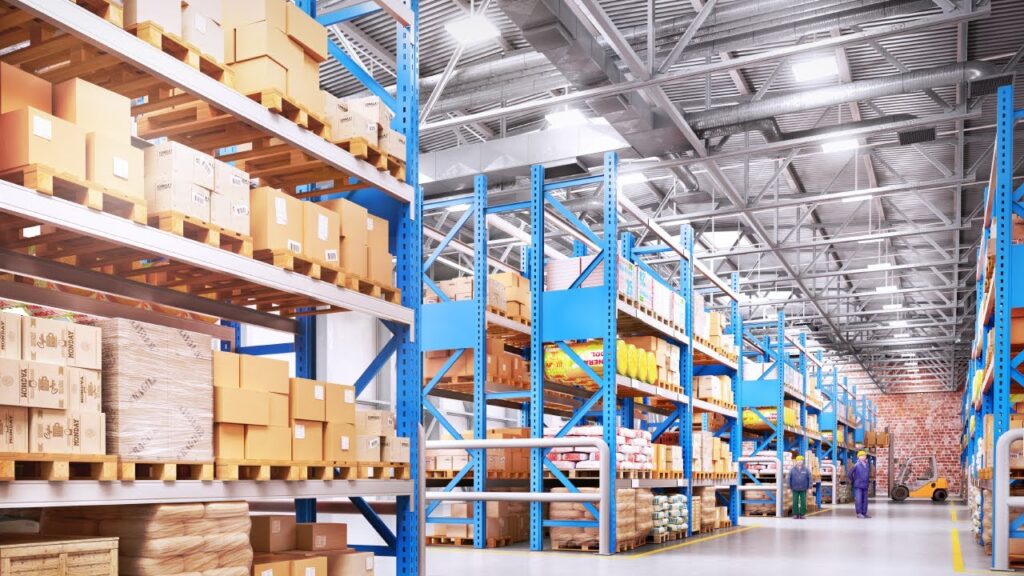
What You Cannot Store in Dubai
Explosives and Ammunition
General warehouses are strictly prohibited by explosives, fireworks, detonators, and ammunition. These can be kept in depots under police control or in special military depots. The storage will be unauthorized and a criminal offence.
Flammable Liquids and Gases
In Dubai, it is impossible to keep highly flammable substances such as gasoline, kerosene, ethanol, propane, and aerosol sprays in regular storage. They should be in certified fire suppression, grounded, and ventilated hazardous goods warehouses.
Corrosives and Toxic Chemicals
Drugs like caustic soda, hydrochloric acid, pesticides, and washing agents used in industries are highly prohibited. Segregation, corrosion-resistant floorings, and secondary containment systems are required in any warehouse that is licensed to store such goods within the Dubai Municipality.
Hazardous Waste
It is prohibited to import hazardous waste to Dubai to be disposal. The consignee should re-export the dangerous goods that have lapsed or are damaged to the country of origin. Local disposal can only be done at the licensed treatment facilities that are under strict supervision.
Biological, Radioactive, and Prohibited Goods
General storage does not cover radioactive isotopes, biomedical waste, live animals, perishables, and narcotics. Medical facilities or research institutions must have specialized licenses.
Lithium Batteries – A Unique Storage Challenge
Classification as Dangerous Goods
Lithium-ion and lithium-metal batteries are considered to be Class 9 dangerous goods worldwide. Their dangers are thermal overrun, fire, and explosion when handled or stored improperly.
International and Local Rules
Air Transport
Lithium-ion batteries typically need to be carried at a state of charge of 30 percent or less, and the watt-hour capacity of the battery in passenger aircraft is limited to 100Wh/battery. The lithium-metal can not contain more than 2g of lithium.
Dubai Aviation Rules
Emirates Airlines and Dubai Airports do not allow the storage and transportation of loose batteries that are not in permitted packages. Banned also are power banks and smart luggage that use lithium batteries.
Warehouse Storage
Any place with lithium batteries in large amounts should have fire suppression features (i.e., clean agent), flammable materials should not be kept there, and there should be a way to monitor temperatures.
Practical Implications
A company that imports electronics to Dubai can not just rent a general storage unit. They instead need to place a contract with a warehouse approved by the Civil Defence on the quality of Class 9 dangerous goods, licensed to maintain labeling and to ensure fire and related safety measures.
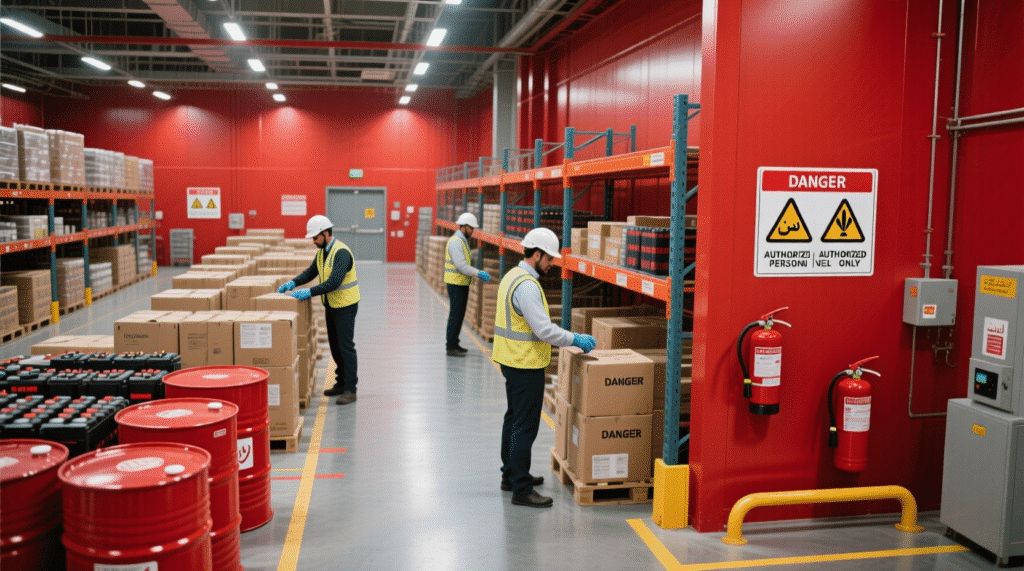
Dangerous Goods Rulebook – Compliance Requirements
Facility Design and Segregation
Dangerous goods warehouses must follow strict design codes:
- Segregation of incompatible substances based on UN compatibility charts.
- Distances of 3–10 meters between hazard classes to reduce cross-contamination.
- Dedicated bunded areas for outdoor liquid storage.
- Fire-rated walls, emergency exits, and static control systems.
Documentation and Labeling
All stored hazardous goods require:
- Safety Data Sheets (SDS) in Arabic and English.
- UN numbers, hazard class labels, and dangerous goods declarations.
- Transport documentation compliant with IATA (air), IMDG (sea), or ADR (land).
Training and Oversight
Warehouse staff must undergo:
- Hazard communication (HAZCOM) training.
- Firefighting and spill response training.
- Regular drills for evacuation and emergency containment.
Disposal and Re-Export
Expired or damaged dangerous goods cannot be abandoned in warehouses. Companies must either treat them through authorized Dubai Municipality contractors or re-export them.
Risks of Non-Compliance
Legal Risks
Failure to comply with Civil Defence or Municipality rules can lead to:
- Fines of AED 1,000–1,000,000 (Law No. 4 of 2025).
- Doubling of fines for repeat offences.
- Suspension of warehouse operations.
- Criminal liability in cases of injury, fire, or environmental contamination.
Business and Insurance Risks
Reputation Damage
A single compliance breach can undermine international trade partnerships.
Insurance Invalidations
Insurers will not cover fire or loss claims if the goods were stored illegally.
Operational Disruption
Non-compliance can lead to confiscation of goods or suspension of trade licenses.

Safe Alternatives for Storage in Dubai
Certified General Warehousing
In the case of non-hazardous products, i.e., furniture, consumer goods, or office equipment, Dubai has many generic storage options; self-storey units and third-party warehouses. These can be used both personally and for business, provided that the goods do not combust, are not toxic, and are not illegally brought into the country.
Licensed Hazardous Goods Facilities
In firms that deal with chemicals, fuels, or lithium batteries, the only alternative is engaging licensed DG warehouses. These facilities provide:
- Fireproof buildings and air-conditioning.
- Hazard classes. Separation zones.
- 24-hour surveillance and Civil Defence requirements.
Free Zone Storage
Dangerous goods storage is in its own areas in free zones like Jebel Ali Free Zone (JAFZA) and Dubai South. Companies that work in free zones are still expected to obey the federal and emirate-level dangerous goods sections, as well as the local zone-based authority.
Summary Table: Prohibited and Restricted Storage in Dubai
| Category | Storage Status | Conditions |
| Explosives, fireworks | Prohibited in general storage | Only in police/military depots with licenses |
| Flammable liquids/gases | Restricted | Allowed only in Civil Defence–licensed hazardous goods facilities |
| Corrosives & toxic chemicals | Restricted | Must be segregated, spill-contained, and stored in certified warehouses |
| Hazardous waste | Prohibited for import | Must be segregated, spill-contained, and stored in certified warehouses |
| Lithium batteries (Class 9) | Restricted | Bulk storage requires licensed DG facilities with fire suppression |
| Perishables, live animals | Prohibited | Not allowed in self storage or general warehouses |
| Any unlicensed hazardous goods | Prohibited | ; Illegal and subject to penalties |
Conclusion
The regulatory environment of storage in Dubai is meant to save lives, property, and the environment. The warning to companies that want to store their products in Dubai is simple to understand: standard goods can be stored in either general warehouses or self-storage facilities, but dangerous, flammable or hazardous items need to be licensed, with the required facilities and supervision.
Lithium batteries, corrosives, and other hazel waste cannot be handled in a way that fits in normal cargo. Using the Dangerous Goods Rulebook, licenses and collaborating only with certified facilities, a company may ensure compliance and isolate their operations.
Hayyan is a logistics veteran with over 15 years of experience in facility management and spatial optimization. He specializes in warehouse security, climate-controlled storage protocols, and the technical logistics of large-scale moving. His focus is on helping clients maximize their square footage while ensuring the long-term preservation of their inventory and belongings.
- Hayyan Al-Jasmi
- Hayyan Al-Jasmi
- Hayyan Al-Jasmi
Thuraya is a specialist in home organization and residential transition management. With a background in interior space planning, she helps individuals navigate the complexities of downsizing and relocation. She provides expert advice on packing fragile items, choosing optimal storage unit sizes, and turning the stress of moving into a seamless, organized experience.
- This author does not have any more posts
